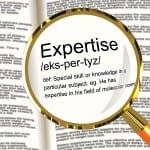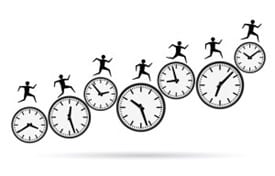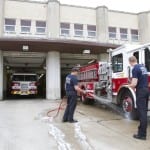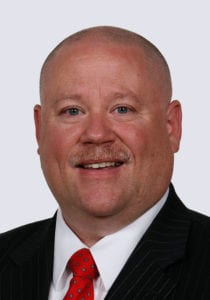 You may or may not know there are researchers who dedicate their lives to understanding what makes someone an expert and how long it takes for them to acquire the knowledge to be an expert. One of the pioneers in the field of expert knowledge research is K. Anders Erickson. The findings of Dr. Erickson’s research (and others in his field) can be sobering, if not disappointing, for first responders seeking to develop situational awareness and high-risk decision-making skills.
You may or may not know there are researchers who dedicate their lives to understanding what makes someone an expert and how long it takes for them to acquire the knowledge to be an expert. One of the pioneers in the field of expert knowledge research is K. Anders Erickson. The findings of Dr. Erickson’s research (and others in his field) can be sobering, if not disappointing, for first responders seeking to develop situational awareness and high-risk decision-making skills.
Expertise
The researchers who study expertise have concluded:
 It takes roughly 10,000 hours of training and practice to achieve expert-level knowledge and performance skills.
It takes roughly 10,000 hours of training and practice to achieve expert-level knowledge and performance skills.
The research has been robustly confirmed with studies in a wide array of professions from medicine to athletes to musicians.
This does not mean 10,000 of being “on-duty.” Down-time that is not dedicated to honing your knowledge and skills does not count.
There are no shortcuts on the trail to become an expert.
The Problem
The problem is it can take a very long time for first responders to accumulate 10,000 hours of training and experience.
 Let’s take, for example, a firefighter who works shifts of 24 hours on and 48 hours off. In one year that would be 121 shift days. However, we have to account for vacations and other time off, so we’ll deduct 10 days from that total. Let’s assume a firefighter dedicates 6 hours per shift toward training and developing expertise.
Let’s take, for example, a firefighter who works shifts of 24 hours on and 48 hours off. In one year that would be 121 shift days. However, we have to account for vacations and other time off, so we’ll deduct 10 days from that total. Let’s assume a firefighter dedicates 6 hours per shift toward training and developing expertise.
So, a career firefighter could hypothetically dedicate roughly 650 hours a year to developing expertise. At this rate, it would take about 15 years for a firefighter to achieve expert-level knowledge and performance.
In some departments, members are promoted to officer positions before they have 15 years of experience. Complicating the problem, even more, some officers are promoted based purely on their performance on a written exam based on a reading list.
Being able to read, memorize and recall book content does not equate to expert knowledge and performance.
Expediting Expertise
The problem of responders lacking expertise is compounded by a reduction in the number of working fire incidents from which to gain experience. Arguably, this would extend the time for expert knowledge development even longer than 15 years.
Dr. Gasaway’ Advice
 Is there any way to expedite expertise development? Fortunately, the answer is yes. A responder can study cases and watch videos where important lessons can be learned that expedite the development of expertise. In other words, a responder can wait to gain experience as first-hand lived experiences or the responder can speed up the process by learning from the experience of others.
Is there any way to expedite expertise development? Fortunately, the answer is yes. A responder can study cases and watch videos where important lessons can be learned that expedite the development of expertise. In other words, a responder can wait to gain experience as first-hand lived experiences or the responder can speed up the process by learning from the experience of others.
Nothing replaces the value of first-hand experience, for sure. But in the absence of incidents to learn from, a responder’s next-best alternative is to build expertise through knowledge gathered through case studies, videos, and simulations.
When reading a case study or watching a video, the student can improve memory and recall of the lessons by vividly imagining he or she is actually part of the incident (versus reading or watching from the position of being third-party observer).
Time invested in deep learning and understanding results in the lessons being stored in the brain in a similar way as lived experiences. Of course, the difference is there will be no muscle-memory of performing the physical tasks and that can be problematic for a responder.
Realistic simulations where responders perform physical tasks can also expedite expert knowledge and performance. For example, a professional golfer spends a lot of time on the practice range, vividly imagining shots and perfecting swing dynamics. Football teams spend a lot of time practicing plays and learning how to improvise on the fly.
Action Items
 1. Discuss the challenges your department is facing in developing expert knowledge among members in light of declining opportunities to gain first-hand experience.
1. Discuss the challenges your department is facing in developing expert knowledge among members in light of declining opportunities to gain first-hand experience.
2. Discuss the ways you currently develop your expert knowledge.
3. Discuss ideas for how to expedite your expert knowledge.
_____________________________________________________

If you are interested in taking your understanding of situational awareness and high-risk decision making to a higher level, check out the Situational Awareness Matters Online Academy.
CLICK HERE for details, enrollment options and pricing.
__________________________________
Share your comments on this article in the “Leave a Reply” box below. If you want to send me incident pictures, videos or have an idea you’d like me to research and write about, contact me. I really enjoy getting feedback and supportive messages from fellow first responders. It gives me the energy to work harder for you.
Thanks,

Email: Support@RichGasaway.com
Phone: 612-548-4424
SAMatters Online Academy
Facebook Fan Page: www.facebook.com/SAMatters
Twitter: @SAMatters
LinkedIn: Rich Gasaway
Instagram: sa_matters
YouTube: SAMattersTV
iTunes: SAMatters Radio
iHeart Radio: SAMatters Radio

A complication, especially in smaller departments, is that members are expected to operate in many different capacities. One shift, they may ride an engine. The next, they may drive an aerial. The next, they may be the medic assigned to the ambulance. It seems to me that 10,000 hours would need to be accumulated in each these disciplines before expert status is attained. In larger departments, it can be easier. I’ve been assigned to an engine company for the past 10 years, so in just 5 more, I’ll be an expert (as long as i’m not transferred to a truck or rescue company)! I’m already the officer of my company, but I’ve used your advice above to accelerate my expertise and “experience” many different situations.